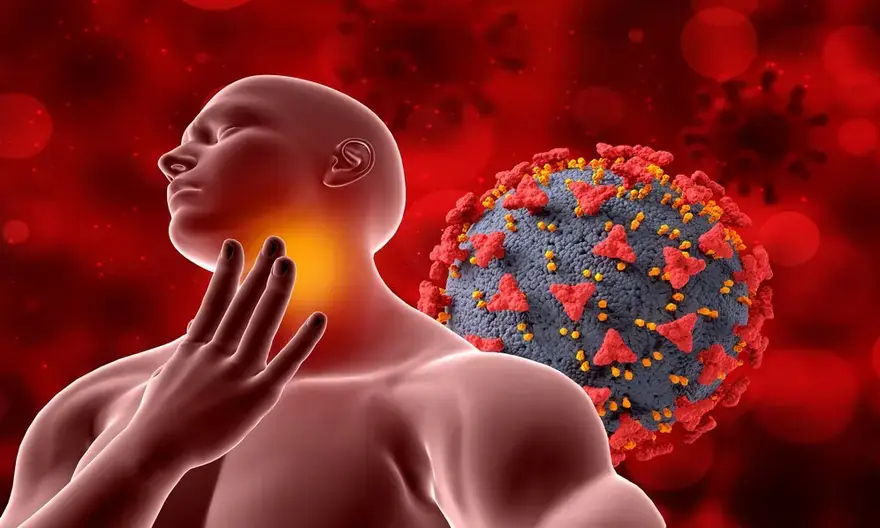Prolactin, Active & Macroprolactin
52+ booked in last 3 daysMacroprolactin Test Overview
Prolactin is a hormone. It is produced in the pituitary gland. It gets secreted in small amounts throughout the day. But its levels increase during pregnancy and stress. Prolactin is responsible for the development of the mammary glands and milk production. It also plays a role in the menstrual cycle regulation and fertility.
Active and macro prolactin are two forms of Prolactin. They have different functions. Active prolactin is responsible for the development of the mammary glands and milk production. Macroprolactin is for the regulation of the menstrual cycle and fertility.
This test is used to rule out false high prolactin levels.
Written by: Dr. Vishal Wadhwa, M.D, D.N.B Microbiology, Medical Affairs
Prolactin, Active & Macroprolactin Price
Metropolis Healthcare is a leading diagnostics centre and pathology lab in India equipped with the latest state-of-the-art technologies that provides the Prolactin, Active & Macroprolactin with a clear pricing structure.
The Prolactin, Active & Macroprolactin Price in Bhiwandi is ₹ 930 .
We are committed to deliver accurate and quality results from the best labs in India with complete transparency regarding test cost and turnaround time. No matter where you are, we strive to offer patients high-quality service that is affordable and accessible.
Frequently Asked Questions
In patients with moderate increase of Prolactin levels, Macroprolactin test is done. It rules out presence of macroprolactin. Macroprolactin, if present, does not lead to clinical symptoms and other causes of disease should be investigated. If macroprolactin is absent then symptoms are likely due to high prolactin levels
Reasons for testing prolactin levels are as below:
In non-pregnant women this test is done to investigate women with menstrual irregularities, infertility and menopausal symptoms.
In lactating mothers test is also done to investigate cause of abnormal breast milk discharge
In men its is done to evaluate for Lowsex drive , testicular failure or abnormal discharge from breast
Test is also done to diagnose suspected pituitary tumours, with symptoms of changes in vision and headache
Macroprolactin test measure Prolactin levels in blood of the patient
Macroprolactin test requires a blood sample. A tourniquet (elastic) band is placed tightly on the upper arm. The patient is then asked to make a fist. This helps in the build-up of blood filling the veins. The skin is disinfected before needle insertion and the blood sample is collected in vacutainer.
A healthcare provider will take your blood sample. An elastic band will get tightly tied to the upper arm. Your skin will get disinfected with cotton soaked in alcohol. The healthcare provider inserts the needle into your vein just above your elbow to collect your blood. The blood will then get poured into a serum separator tube. You may feel a prick when the needle enters and exits your vein. The healthcare provider then puts clean cotton over the punctured area.
If monomeric/ active prolactin is more than 50% then macroprolactin is considered absent and the high results of prolactin should be investigated as below:
High Levels of Prolactin are seen in - Prolactinoma, Polycystic Ovarian Disease, hypothyroidism , liver disease, hypogonadism. Macroprolactinemia must be ruled out. MIld prolactin excess (26.5 to 50 ng/ml) are seen with exercise, lactation, emotional stress, exercise. It may be of no clinical relevance. Repeat test after 1 month is advised. Levels between 51-75 ng/ml are associated with menstrual disorders and subclinical hypothyroidism. Levels above 100 ng/ml are associated with hypogonadism, amenorrhea, galactorrhoea
If the amount of monomeric or active prolactin is more than 50%, macro prolactin is absent. The following questions about the high prolactin results raise:
- In prolactinoma, polycystic ovarian disease, hypothyroidism, liver disease, and hypogonadism, prolactin levels are high.
- It is crucial to rule out macropolactinemia. Mild prolactin overproduction (26.5–50 ng/ml) can be caused by exercise, breastfeeding, emotional stress, or both. It might not matter in the real world. Testing should happen again in a month.
- Menstrual problems and mild hypothyroidism show prolactin levels between 51 and 75 ng/ml. Levels above 100 ng/ml signify low testosterone, no periods, and spotting.
The most common cause of high macro prolactin levels is a non-cancerous (benign) tumour of the pituitary gland. Other causes include certain medications, health conditions, and other pituitary gland tumours. At times, the cause is unknown.
The test happens 3 hours after you wake up. This is usually between 8 am and 10 am. Avoid any emotional stress or strenuous activity before the test. The healthcare provider will ask you to rest for 30 minutes before the test.
PROLACTIN, Total
Males
Below 18 years: not established
Above 18 years: 4.0-15.2 ng/mL
Females
Below 18 years: not established
Above 18 years: 4.8-23.3 ng/mL
Prolactin, Unprecipitated
Males
Below 18 years: not established
Above 18 years: 2.7-13.1 ng/mL
Females
Below 18 years: not established
Above 18 years: 3.4-18.5 ng/mL
A prolactin level of more than 250 ng/dl indicates the presence of a tumour.
Weight gain is a common complaint of hyperprolactinemia or high levels of prolactin.
The pituitary gland is responsible for the peptide hormone production known as prolactin. Its primary effect is on the mammary glands. These effects are the proliferation of mammary glands and the commencement of milk secretion. During pregnancy and when a woman is nursing, there is an increase in the levels of this hormone.
The predominant molecular types of circulating prolactin are monomeric, "large," and "big, big," collectively referred to as macro prolactin and "big, big." Even though there are no symptoms, macroprolactinomas are a common condition. These can cause mild to moderate hyperprolactinemia. Patients with hyperprolactinemia should undergo testing to determine their macro prolactin and prolactin levels.
This test gets carried out on patients who have experienced a little elevation in their prolactin levels. It eliminates the possibility of macro prolactin being present. Even when macro prolactin is present, there are no clinical symptoms.
- This test gets done on women who are not pregnant. This is to see if they are having problems with their periods, can't get pregnant, or are going through menopause.
- This test is for breastfeeding women- to find out why their milk leaks
- When done on men, it helps find out if they don't want to have sex, if their testicles aren't working, or if their breasts are leaking something strange.
- To diagnose a suspected pituitary tumour. This is characterized by alterations in eyesight and headaches.
- Prolactin Levels
- Serum Macroprolactin Level
- PRL
- Monomeric Prolactin
- Serum PRL
- MCRPL
- Macroprolactin, Serum
- Prolactin, Macro
- Monomeric
- Prolactin (PRL)
- PRL (Prolactin)
- Active prolactin (Post PEG treatment Prolactin)
- Macroprolactin (Calculated)
Ratings & Reviews (0)
Why Metropolis?
Metropolis has a team of 200 senior pathologists and over 2000 technicians delivering diagnostic solutions in the areas of routine, semi specialty and super specialty domains like Oncology, Neurology, Gynaecology, Nephrology and many more.
We offer a comprehensive range of 4000+ clinical laboratory tests and profiles, which are used for prediction, early detection, diagnostic screening, confirmation and/or monitoring of the disease.



.png)














1736506020.webp)


 WhatsApp
WhatsApp